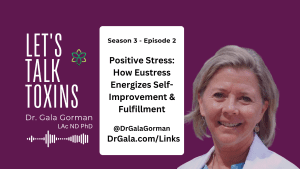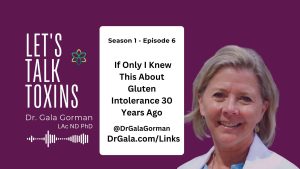There is no denying that there are several benefits of practicing gratitude. For one, it is a very important aspect of having a better society. We have heard it taught to us by our parents, our teachers, and even our mentors at work. Here in the United States, we celebrate Thanksgiving Day every November to remind us to be thankful for what we have.
Psychology Today defines gratitude as an “emotion expressing appreciation for what one has – as opposed to, for example, a consumer-driven emphasis on what one wants.”
According to Dr. Angeles Arrien, Ph.D., author of the article entitled “What is Gratitude”, gratefulness or gratitude is an innate quality in every human being which is sparked and uttered spontaneously in a variety of contexts. “Every language in the world has a way of saying “thank you”, she writes. “Gratitude crosses all boundaries—creed, age, vocation, gender, and nation—and is emphasized by all the great religious traditions.”
Despite the fact that gratitude seems to be a universal trait, we sometimes succumb to the pressures of the world and forget how to be grateful.
It’s not too late. We can actually cultivate gratitude within ourselves and the people around us.
Dr. Gala’s Quick Take
Practicing gratitude and positive thinking can create a rewarding life. There are ways of simple gratefulness that helps you shift your mindset, creating a foundation for greater happiness.
Here are 10 remarkable benefits of practicing gratitude.
1. Gratitude makes us happier.

Several studies on gratitude have pointed out that being grateful eventually leads to better health, better relationships, better emotions, better personality, and better career. Possessing these qualities will lead to a happier life.
However, “this doesn’t mean that life is perfect; it doesn’t ignore complaints, burdens, and hassles. But when we look at life as a whole, gratitude encourages us to identify some amount of goodness in our life.” via Why Gratitude is Good
2. Gratitude increases self-esteem.

Since practicing gratitude allows you to see the world in a positive light, it decreases the probability of you focusing on things that negatively impact your life. This, in turn, will help you become mentally strong, confident, and have a higher self-esteem.
We have seen a lot of handicapped people who have become successful inspirational speakers. These people have very high self-esteem. While other people look at them with pity, they refuse to focus on their handicap and rather choose to be grateful for the other parts of their body that are functioning well, which they then developed and used to their advantage – in this case, their voice and brain. As they gain the support of people, their self-esteem also improves.
3. Gratitude opens the door to more relationships.

Saying thank you does work wonders. “Not only does saying “thank you” constitute good manners, but showing appreciation can help you win new friends, according to a 2014 study published in Emotion. The study found that thanking a new acquaintance makes them more likely to seek an ongoing relationship. So whether you thank a stranger for holding the door or send a thank-you note to that colleague who helped you with a project, acknowledging other people’s contributions can lead to new opportunities.” via 7 Scientifically Proven Benefits of Gratitude
4. Make us more optimistic.

“Higher levels of gratitude are associated with better sleep patterns-leading to greater energy and optimism.” via 14 Scientifically Proven Ways Gratitude Can Bring You Success and Happiness
“Showing our gratitude not only helps others feel more positively, it also makes us think more positively. Regular gratitude journaling has been shown to result in 5% to 15% increases in optimism (Amin, 2014), meaning that the more we think about what we are grateful for, the more we find to be grateful for!” via The Benefits of Gratitude: 28 Questions Answered Thanks to Gratitude Research
Grateful people usually look at things in a broader perspective. They don’t only pay attention to just one part of their life. So when one thing goes wrong, they acknowledge it and will still be thankful that despite the negative things that happened, in general, there are still some good things in their lives that they can look forward to.
5. Grateful people are more hopeful and healthier.

“A 2015 paper in the Journal of Religion and Health found that those who were more grateful for who they are and what they have were more hopeful and also physically healthier. Psychology Today cites several studies that found people who report being more grateful also report feeling fewer aches and pains, and are more likely to go to the doctor and take care of themselves.” via 5 Scientifically Proven Benefits of Gratitude
Other studies have reported that people who take the time to make a list of what they are grateful for emerged to have better mental and physical state compared to those that did not do the same.
6. Grateful people are less likely to burn out.

“Researchers have found that managers who provide gratitude and recognition to employees have a lower tendency to burn out in their own jobs.” via 14 Scientifically Proven Ways Gratitude Can Bring You Success and Happiness
This is true. Imagine yourself working for a boss who only criticizes you instead of being thankful for your efforts. This often leads to high stress levels which eventually burns you out. Now, if you feel that you are being appreciated at work, you will experience less stress and the tendency to burn out is very minimal.
7. Grateful people sleep better.

Since optimism or positivity is one effect of gratitude, obviously, this boils down to better sleep. With fewer worries and less focus on negativity, a person would be able to sleep better. And this is backed up by research.
One study performed by psychologists, Robert Emmons and Michael McCullough, shows that making nightly lists of things you are grateful for can improve your sleep.
Another study cited in Psychology Today, which was conducted by researchers from the University of Manchester in England, proved that gratitude is associated with having more positive thoughts during bedtime. This, in turn, makes dozing off faster and sleeping longer and better.
“Spend just 15 minutes jotting down a few grateful sentiments before bed and you may sleep better and longer.” via 7 Scientifically Proven Benefits of Gratitude
8. Helps us increase productivity.

“Those who are insecure have difficulty focusing because many of their mental resources are tied up with their worries. On the other hand, those who are highly confident are able to be more productive, because they can direct more of their focus towards their work. This operates at both a conscious and subconscious level – we may be getting mentally distracted by our worries, or more commonly, parts of our subconscious mind are expending energy to suppress negative information and concerns.
“As gratitude has been shown to increase self-esteem and reduce insecurity, this means that it can help us focus and improve our productivity.” via The 31 Benefits of Gratitude You Didn’t Know About: How Gratitude Can Change Your Life
9. Gratitude removes your sense of entitlement.

This is probably one of the most important benefits of gratitude, which not only impacts our individual lives but others’ as well. “When you’re grateful, you won’t feel that the world owes you anything. Gratitude reduces your self-entitlement. Gratitude allows you to value hard work.” via Top Benefits of Gratitude
True gratitude, according to Robert Emmons, involves a humble dependence on others. He says, “We acknowledge that other people—or even higher powers, if you’re of a spiritual mindset—gives us many gifts, big and small, to help us achieve the goodness in our lives.”
Thus, if you are grateful, you won’t feel self-entitled with anything since you acknowledge that everything you have does not only come from your efforts alone but that others have helped you achieve it.
10. Grateful people are more resilient to trauma.

“Highly resilient people are flexible, adapt to new circumstances quickly, and thrive in constant change. Most important, they expect to bounce back and feel confident that they will. They have a knack for creating good luck out of circumstances that many others see as bad luck.” via 4 Things That Make the Difference Between Surviving and Thriving
This is one of the characteristics of a grateful person. “Gratitude has a major impact on enabling people to maintain emotional well-being after experiencing a traumatic life experience.” via 14 Scientifically Proven Ways Gratitude Can Bring You Success and Happiness
Further, clinical social worker, Darcy Smith, believes that gratitude is one of the most important parts of resiliency. “When adversity strikes, gratitude for the things that are going right in your life helps put tragedy in perspective.” via The 5 Best Ways to Build Resiliency
Being Grateful Makes You Happier!
Knowing the benefits of gratitude, we can now see that being grateful is a very important trait that we need to cultivate in ourselves and in other people as well if we can. This will allow us to live in a happier, safer, and more positive society.
Are you ready to start practicing gratitude? Here are 10 simple acts of kindness that you can practice to live a happier life.
“If you came into my office, I’d ask you a lot of questions that would help us connect the dots … so that together we can deal with your toxic stress.
Every situation is unique and you need a plan that works for you. Not a one-size-fits-all solution.
If you’re thinking you can’t come into my office, don’t worry. I’ve created a program with all of my initial recommendations to help you unravel the mystery. You can use it at home and at your convenience.
So if you’re thinking that managing chronic stress just isn’t possible … or even the answer … for you, I want to show you what you may be missing.
And how you can identify the toxic stressors that are creating your symptoms with my Human Energy System Reboot. You can get started HERE.” – Dr. Gala











